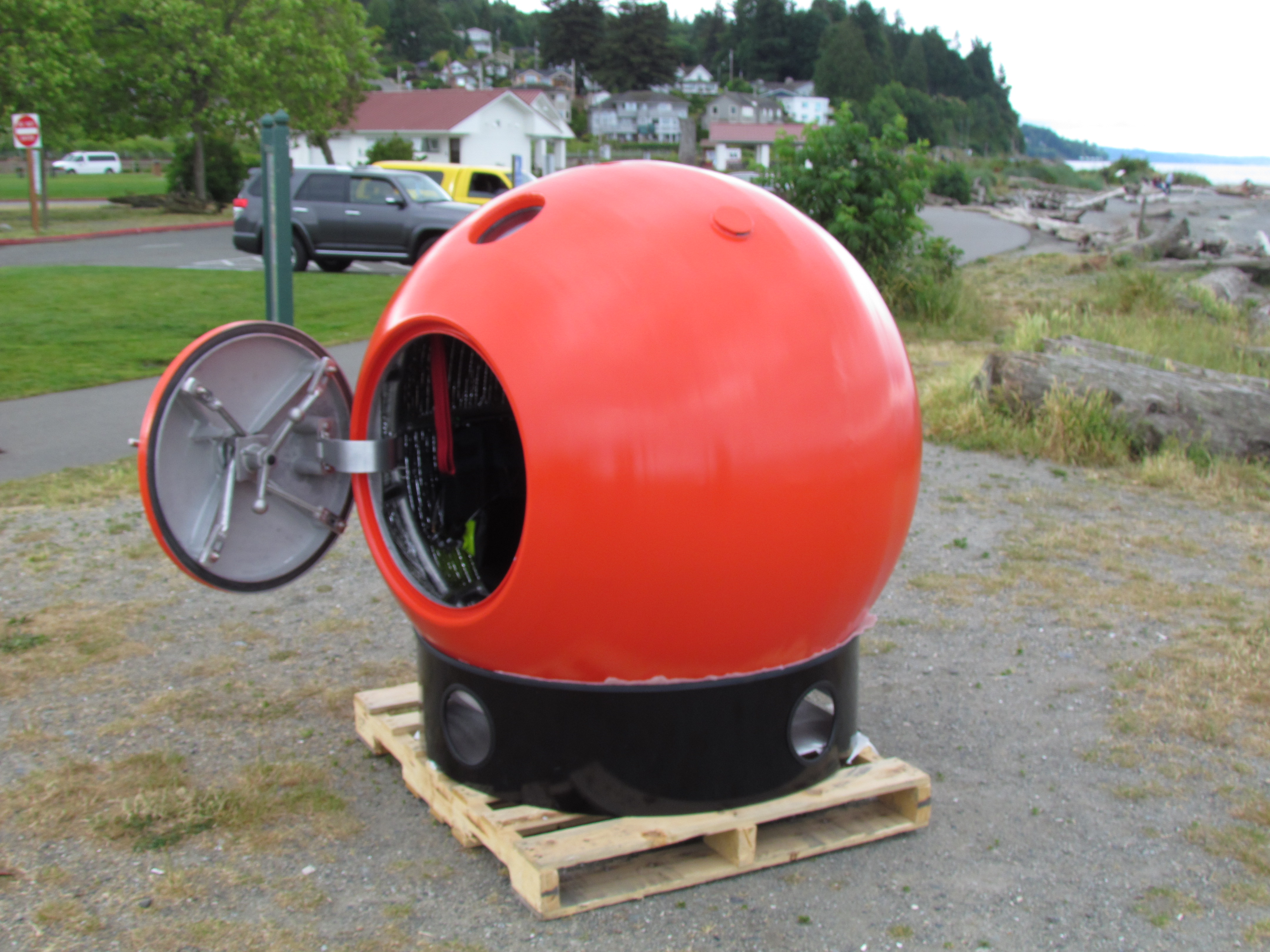At press time, the House had passed two cybersecurity bills, one Senate bill had been passed out of committee and reported to the full chamber for a final vote, and a third House bill and a second Senate bill were awaiting review by the appropriate committee. The two House bills that passed earlier this week will be combined and sent to the Senate, but the Senate won't take up them up directly; instead, it will vote on its own two bills. It's complicated, so here's a quick breakdown of the key details.
Ben Yeager reports in Outside Magazine that Italian explorer Alex Bellini plans to travel to Greenland's west coast, pick an iceberg, and live on it for a year as it melts out in the Atlantic. It's a precarious idea. Bellini will be completely isolated, and his adopted dwelling is liable to roll or fall apart at any moment, thrusting him into the icy sea or crushing him under hundreds of tons of ice. His solution: an indestructible survival capsule built by an aeronautics company that specializes in tsunami-proof escape pods.
 "I knew since the beginning I needed to minimize the risk.
An iceberg can flip over, and those events can be catastrophic." Bellini
plans to use a lightweight, indestructible floating capsules, or
"personal safety systems" made from aircraft-grade aluminum in what's
called a continuous monocoque structure, an interlocking frame of
aluminum spars that evenly distribute force, underneath a brightly
painted and highly visible aluminum shell. The inner frame can be
stationary or mounted on roller balls so it rotates, allowing the
passengers to remain upright at all times.
"I knew since the beginning I needed to minimize the risk.
An iceberg can flip over, and those events can be catastrophic." Bellini
plans to use a lightweight, indestructible floating capsules, or
"personal safety systems" made from aircraft-grade aluminum in what's
called a continuous monocoque structure, an interlocking frame of
aluminum spars that evenly distribute force, underneath a brightly
painted and highly visible aluminum shell. The inner frame can be
stationary or mounted on roller balls so it rotates, allowing the
passengers to remain upright at all times.Aeronautical engineer Julian Sharpe, founder of Survival Capsule, got the idea for his capsules after the 2004 Indonesian tsunami. He believes fewer people would have died had some sort of escape pod existed. Sharpe hopes the products will be universal—in schools, retirement homes, and private residences, anywhere there is severe weather.
The product appeals to Bellini because it's strong enough to survive a storm at sea or getting crushed between two icebergs. Bellini will spend almost all of his time in the capsule with the hatch closed, which will pose major challenges because he'll have to stay active without venturing out onto a slippery, unstable iceberg. If it flips, he'll have no time to react. "Any step away from [the iceberg] will be in unknown territory," says Bellini. "You want to stretch your body. But then you risk your life."
Nepal was struck by an earthquake of magnitude 7.8 today, with an epicenter 80 km east of the country's second biggest city, Pokhara. Its effects were also strongly felt in the capital, Kathmandu. Casualty reports conflict, but authorities have indicated at least 500 are dead and many more are feared to be trapped. Nepal has declared a state of emergency for the affected areas, and asked for international humanitarian assistance. India and Pakistan have both offered help. Some Indian cities were affected by the earthquake as well, and there are reports of avalanches on Mt. Everest, which has many climbers at any given time.
Due to their jobs as pollinators, life without bees means death to humans eventually...
Soon to happen?
Neonicotinoids are a class of neuro-active insecticides chemically similar to nicotine. Neonicotinoids kill insects by overwhelming and short-circuiting their central nervous systems (PDF). Shell and Bayer started the development of neonicotinoids back in the 1980s and 1990s. Since this new group of pesticides came to market, the bee population has been devastated in regions where they have been widely used. Studies from 2012 linked neonicotinoid use to crashing bee populations.
New studies, however, have discovered that bees prefer nectar laced with neonicotinoids over nectar free of any trace of neonicotinoids. According to researchers at Newcastle University, the bees may "get a buzz" from the nicotine-like chemicals in the same way smokers crave cigarettes.
My wife and I previewed the Apple watch last Thursday at our local Apple Store.
An unenthusiastic employee helped us to put on the watches and than started the demo on them.
We were actually sold on the idea of the watches but were told they would not ship or be available until June...
No comments:
Post a Comment